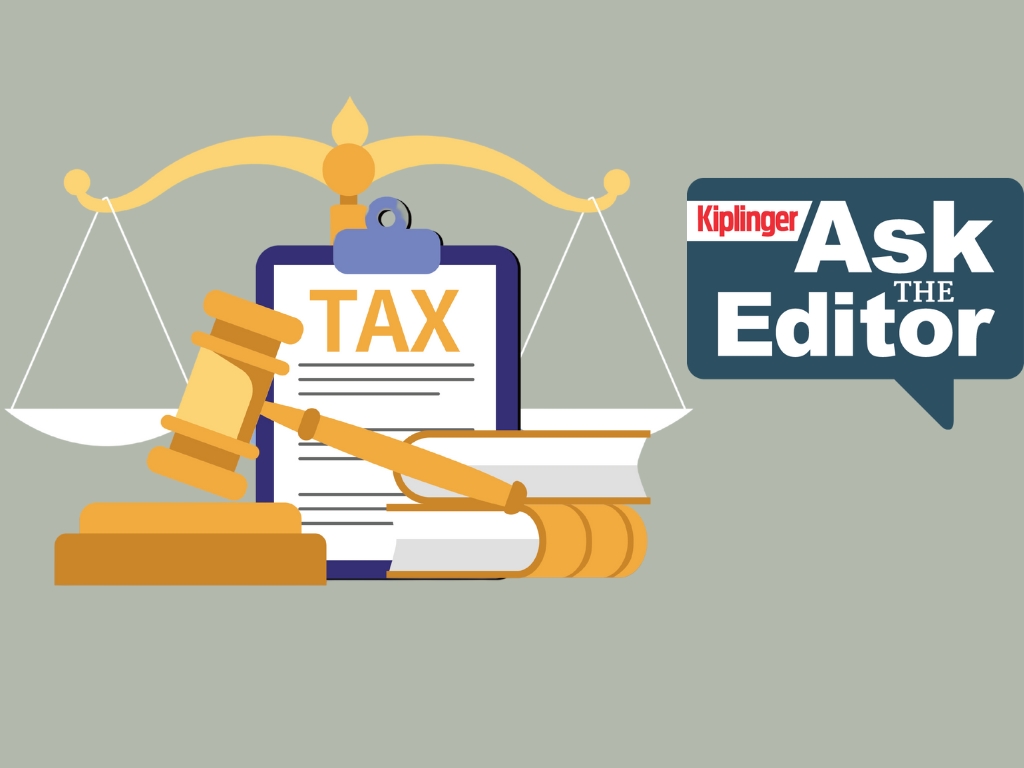How to Freeze Your Credit in Three Steps
Freezing your accounts at the three major credit bureaus is the best way to prevent thieves from opening new credit accounts in your name.

Donna LeValley
Used to be you'd freeze your credit if you'd suffered identity theft or some other compromise of your personal information. But as data breaches have piled up, a pre-emptive credit freeze has become a popular way to protect your credit, even if a thief hasn't yet made fraudulent use of your info.
If you're one of the 190 million impacted by the United Health Care data breach or the more recent breach affecting Hilton and Marriott customers, then you might be considering some options to protect your data. Here's a look at how a credit freeze can help you.
What does a credit freeze do?
When you put a credit freeze (sometimes called a security freeze) in place, new creditors can't review your credit reports to judge whether you're eligible for a credit card or loan — and in turn, lenders are unlikely to grant credit to fraudsters posing as you. When you need to shop for credit for yourself, you can temporarily lift the freeze.

Sign up for Kiplinger’s Free E-Newsletters
Profit and prosper with the best of expert advice on investing, taxes, retirement, personal finance and more - straight to your e-mail.
Profit and prosper with the best of expert advice - straight to your e-mail.
How much does a credit freeze cost?
Do I have to pay to freeze my credit? Nope. Placing and lifting a freeze is free at each of the major credit agencies, thanks to federal law.
How do I freeze my credit?
To set up a credit freeze, take these three steps.
1. Gather your information. In the past, all three of the credit agencies had consumers use a PIN to confirm their identities when they wanted to temporarily lift or permanently remove a freeze. But TransUnion, Equifax and Experian no longer require a PIN. Instead, you can set up a password-protected online account or provide identity-verification information by phone or mail. But if you go online, you can manage your freeze with a password-protected account instead.
2. Contact each credit agency. The web pages or phone numbers below are the quickest avenues to imposing a freeze. To submit your request by mail, use these addresses.
Freeze your credit with Equifax
Equifax Information Services LLC,
P.O. Box 105788,
Atlanta, GA 30348
(Fill out and submit this form to request a freeze by mail.)
888-298-0045
Freeze your credit with Experian
Experian Security Freeze,
P.O. Box 9554
Allen, TX 75013
888-397-3742
Freeze your credit with TransUnion
TransUnion
P.O. Box 160
Woodlyn, PA 19094
888-909-8872
3. Save your passwords. We're all guilty of using the same passwords for everything. However, that also means if hackers can crack your password, it won't take them long to access all of your information. For this reason, having a password manager is essential. Some of the top options include Dashlane and NordPass. They can create unique passwords for each of your online accounts to keep you safe, and store them securely for when you need to use them.
Norton protects your data by monitoring hundreds of millions of data points per minute.
Other steps to protect your credit
- Monitor your credit reports regularly. While you can receive a free credit report from each bureau annually, having a service like MyFico helps you stay on top of any credit changes, like new accounts opening or inquiries. And if you don't recognize any changes, you can place freezes on your credit history right away before more damage happens.
- Store documents securely. If you can, sign up for electronic statements with your lenders. They'll arrive in your email, reducing the likelihood of anyone intercepting information through the mail. You can also use a service like Quicken's LifeHub to store any documents securely on the cloud. That way, you can shred paper files and have access on the go, anytime you need it.
- Use a password manager. A password manager creates difficult passwords to crack and stores them securely for you. Services like 1Password protect every aspect of your digital life, tying in all your online accounts with all of your devices in one hub to secure all data points.
- Use credit repair services to fix errors. If you notice errors in your credit report, you might be wondering how to fix them. Credit Saint specializes in helping customers improve their credit scores by working on their behalf to remove incorrect information on your credit reports.
Related Content
- Things to Do Immediately If You're Involved in a Data Breach
- How to Fix Errors in Your Credit Report
- How to Protect Your Home From Deed Theft
Profit and prosper with the best of Kiplinger's advice on investing, taxes, retirement, personal finance and much more. Delivered daily. Enter your email in the box and click Sign Me Up.

Lisa has been the editor of Kiplinger Personal Finance since June 2023. Previously, she spent more than a decade reporting and writing for the magazine on a variety of topics, including credit, banking and retirement. She has shared her expertise as a guest on the Today Show, CNN, Fox, NPR, Cheddar and many other media outlets around the nation. Lisa graduated from Ball State University and received the school’s “Graduate of the Last Decade” award in 2014. A military spouse, she has moved around the U.S. and currently lives in the Philadelphia area with her husband and two sons.
- Donna LeValleyRetirement Writer
-
 Ask the Editor — Tax Questions on the New Senior Deduction
Ask the Editor — Tax Questions on the New Senior DeductionAsk the Editor In this week's Ask the Editor Q&A, we answer tax questions from readers on the new $6,000 deduction for taxpayers 65 and older.
-
 These Summer 2025 Back-to-School Tax-Free Weekends Start Now
These Summer 2025 Back-to-School Tax-Free Weekends Start NowSales Tax Over a dozen states offer back-to-school shoppers a sales tax holiday this summer.
-
 Do You Need Flood Insurance? I'm an Insurance Expert, and Here's Where You Can Get It
Do You Need Flood Insurance? I'm an Insurance Expert, and Here's Where You Can Get ItStandard homeowners insurance does not cover flood damage, so you might need separate flood insurance, which you can get either through FEMA or private companies. Here are the details.
-
 I'm an Investment Professional: These Are the Three Money Tips I'm Giving My College Grad
I'm an Investment Professional: These Are the Three Money Tips I'm Giving My College GradCollege grads can help set themselves up for financial independence by focusing on emergency savings, opting into a 401(k) at work (if it's offered) and disciplined, long-term investing.
-
 3 Things Dave Ramsey Says to Stop Buying — and 2 That Are Worth It
3 Things Dave Ramsey Says to Stop Buying — and 2 That Are Worth ItDebt-free living starts with smart choices. Here's what Ramsey says to avoid and where your money is well spent.
-
 Five Big Beautiful Bill Changes and How Wealthy Retirees Can Benefit
Five Big Beautiful Bill Changes and How Wealthy Retirees Can BenefitHere's how wealthy retirees can plan for the changes in the new tax legislation, including what it means for tax rates, the SALT cap, charitable giving, estate taxes and other deductions and credits.
-
 This is the Best CD to Get Amid Rate Uncertainty
This is the Best CD to Get Amid Rate UncertaintyThis CD helps you earn more than 4%, with quick access to your cash if you need it.
-
 Is It Time to Cut the Cord on Your Landline?
Is It Time to Cut the Cord on Your Landline?With rising costs and evolving technology, many are rethinking their home phone service. Here's how to decide if it's time to let go.
-
 Can AI Help With Your Finances?
Can AI Help With Your Finances?ChatGPT and other artificial-intelligence tools will streamline certain tasks, but don't count on them to get everything right.
-
 Neglecting Car Maintenance Could Cost You More Than a Repair, Especially in the Summer
Neglecting Car Maintenance Could Cost You More Than a Repair, Especially in the SummerWorn, underinflated tires and other degraded car parts can fail in extreme heat, causing accidents. If your employer is ignoring needed repairs on company cars, there's something employees can do.
